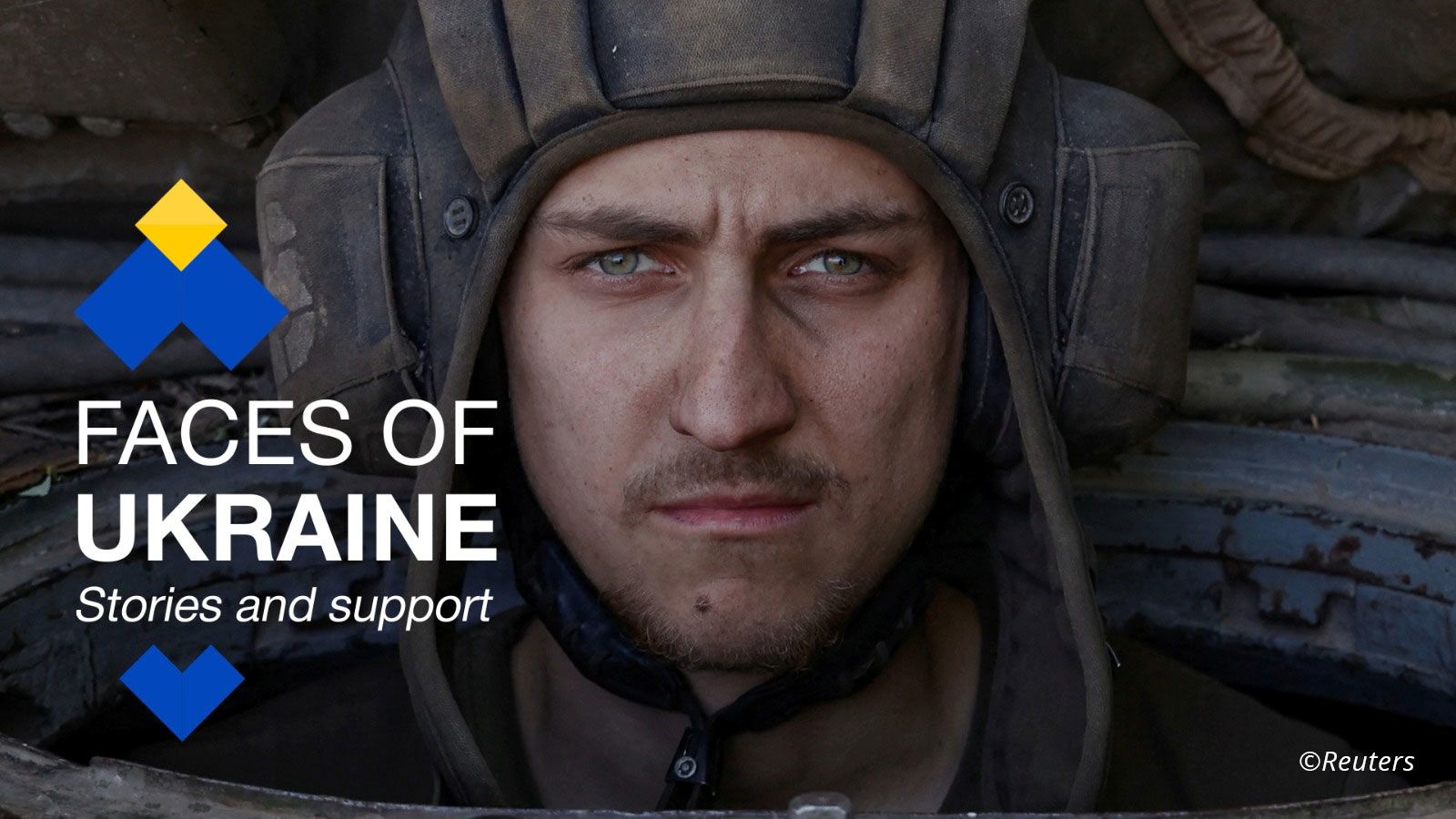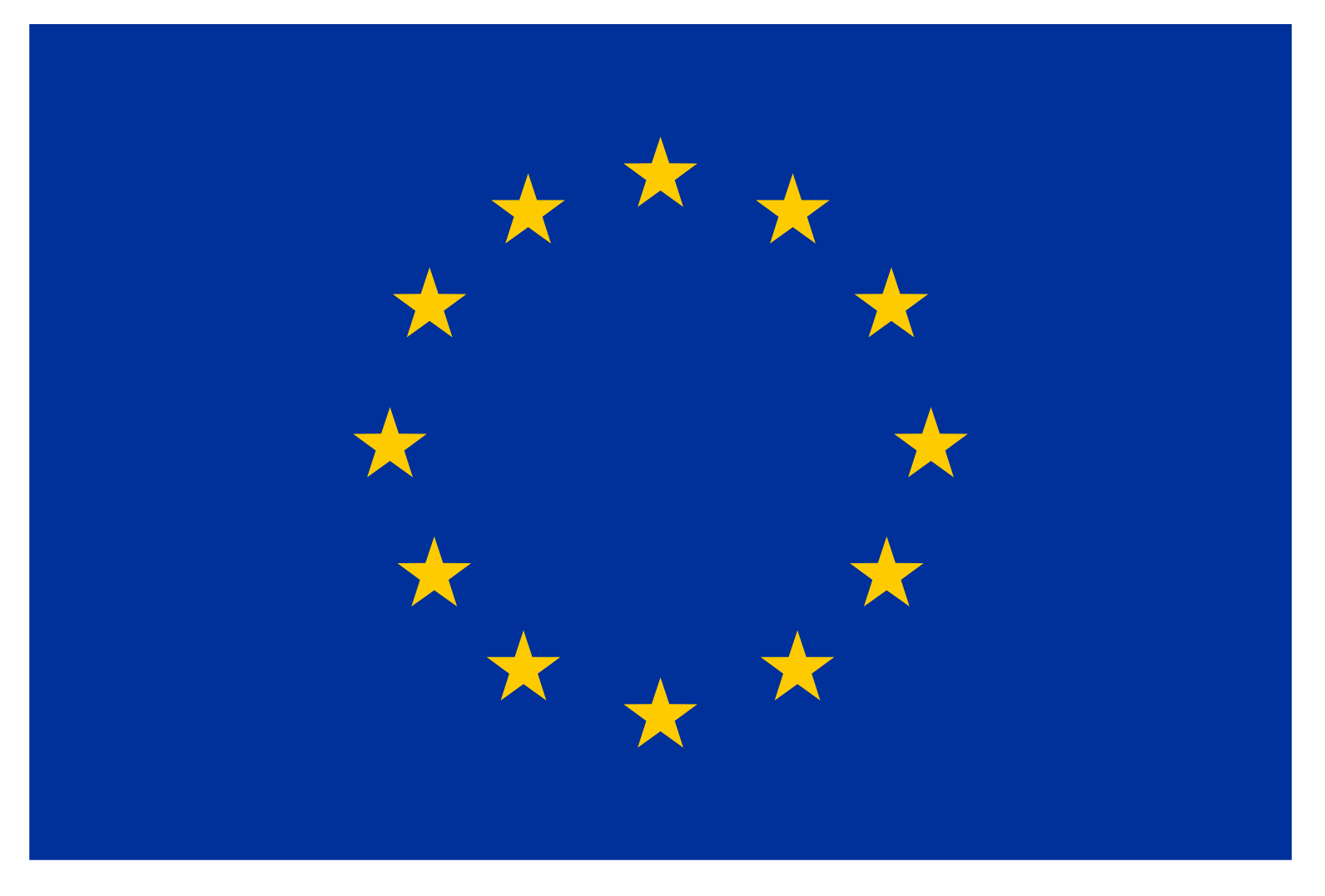

Since the full-scale Russian invasion of Ukraine on 24 February 2022, millions of Ukrainians have fled their homes, either to safer parts of the country or across its borders.
Many have remained behind to volunteer and fight, others are unable or unwilling to leave, some have returned as Russian forces were pushed back. Young and old, women and men, their faces tell a story of determination and resilience.
They are the faces of Ukraine.


The full-scale Russian invasion of Ukraine has forced more than 14 million people to leave their homes. The vast majority of refugees are women and children, often travelling alone and highly vulnerable to trafficking and abuse. The European Union and its international partners support Ukraine’s resistance against the brutal Russian assault. The EU also provides support to those seeking shelter and helps those looking for a safe way home.

“You could say that our war has a woman’s face because we have two million more women than men in Ukraine”
Olena, the First Lady of Ukraine
Olha and Liudmyla

Olha and Liudmyla are two grandmothers from Odesa. At first, they stayed at home, but the explosions and sirens finally took their toll. Olha’s daughters and grandchildren fled to Chișinău in neighbouring Moldova, while Liudmyla’s daughter and grandson stayed behind. Olha and Liudmyla crossed to Moldova but chose to stay in Anenii Noi, close to the Ukrainian border.
“We don’t need to go further. We are happy to be close to home, like we’re almost there. As soon as everything is ok, we’ll go home!”

EU assistance to Ukraine

From the very first day, the European Union has mobilised to support Ukrainians, acting to meet immediate needs, to build resilience and assist recovery. In just three months since the Russian invasion, the EU has provided around €4.6 billion of support to Ukraine, giving also €2 billion in military assistance.

Mykola

Mykola is the founder of the Luhansk Association of Organisations of People with Disabilities. In February, as the fighting escalated, Mykola and many of his colleagues abandoned their homes in Sievierodonetsk, eastern Ukraine. When they finally reached Lviv, near the Polish border, they decided to organise humanitarian help to vulnerable citizens in the east.


“Every day we send trucks of food and essentials. In the past three weeks, we delivered 60 tonnes of humanitarian aid to Kharkiv, Sievierodonetsk and Kramatorsk – much of it with the UNDP in partnership with the EU.”

Protecting refugees

For the first time, the EU has activated its Temporary Protection Mechanism, allowing Ukrainian refugees to stay in the EU for at least one year, with full access to education, health and employment. The EU also supports Internally Displaced People (IDPs) and their host communities, ensuring continued access to basic goods and services, such as education, healthcare and food.

Kateryna

In 2014, Kateryna Pryimak was a paramedic on the front line in eastern Ukraine. In 2018, she set up the Ukrainian Women Veteran Movement. When the war broke out on 24 February, she realised she could no longer stand the sight of blood, but was determined to help out in whatever way she could.


“How could I just sit there doing nothing? I had to react. The first days after 24 February I was super stressed. I couldn’t sleep or eat. I felt I had to do something all the time.”


Now Kateryna and her team run a humanitarian volunteer centre, helping the military and civilians with logistics, supplies and humanitarian issues.
“We joked that if anything happened, we could revive the nation. We have artists and IT specialists, directors and architects working in our HQ, people from Mariupol, people with nowhere to return.”

EU projects stepping in to help

When Russia invaded, EU projects active in Ukraine, and their local and international partners, rapidly repurposed their activities to meet the emergency challenge and the massive displacement of populations.
EU projects supporting Ukraine

Vladyslav

Vladyslav is a biochemical engineer and activist in Odesa. He heads the Green Leaf NGO, which worked for environmental protection and the fight against corruption before the war.


When the war began, Green Leaf started gathering information about Russian crimes against the environment – pollution due to explosions, damage to infrastructure and to natural eco-systems. They have also trained a group of local journalists to identify crimes against nature.
“Many regional journalists have lost their jobs yet there is a huge demand for independent reporting on the war."


Green Leaf are also providing logistical support to the huge volunteer effort in Odesa, which has become an important centre for refugees fleeing surrounding cities such as Kherson and Mykolayiv. They are also helping to provide for army needs.

Delivering food and medical care

On the ground, the EU provides practical support to the Ukrainian population: over 6 million people have received food assistance from EU humanitarian partners, and nearly 2 million have benefitted from health support, with supplies, care, and even virtual medical assistance.

“Hello, my name is Marta, your online chatbot helper for medical assistance in your area.”
In peacetime, medical chatbot “Marta” dealt with doctor’s appointments, vaccination reminders and information about rights, hospitals and free medical services. With the onset of the war, a new feature was developed with EU support: Marta can now help people self-diagnose medical conditions. This has proved invaluable for those unable to access medical support.

Yevgen

Yevgen is an artist from Dnipro. He moved to Kyiv and set up an atelier six years ago. When the war began, he was forced to leave the atelier and all his paintings, and returned to Dnipro. He now volunteers, providing bulletproof vests and raising money for the military.


“I continue to paint and thanks to this, I collect money for the needs of the army and others.”

#ArtvsWar

The EU’s #ArtvsWar campaign aims to raise awareness of the destruction of cultural heritage and cultural life during the war. As part of the campaign, the EU calls to share evidence of Russian war crimes related to the destruction of cultural heritage in Ukraine, as well as stories about the protection of Ukrainian culture.

The lost faces

On 8 April, European Commission President Ursula von der Leyen visited Bucha, just days after it was liberated, revealing the harrowing atrocities committed by occupying Russian forces.


"The question to be answered: will it be humanity that is prevailing?"

Investigating war crimes

The EU supports the investigation and prosecution of Russian war crimes committed in Ukraine, adopting new rules to allow the EU Agency for Criminal Justice Cooperation to preserve, analyse and store war crimes evidence.
The EU, the United States and the United Kingdom have also set up the Atrocity Crimes Advisory Group to support the War Crimes Units of the Office of the Prosecutor General of Ukraine on the ground.

“I still can’t handle such a fragile mental state – once I started crying in the main street of Poznan because I’d heard a song in Ukrainian”
Mariia

Mariia, a student and Young European Ambassador, was in Hungary on 24 February. In early March, Russian troops attacked and briefly occupied her home town of Voznesensk in southern Ukraine. For several days, Mariia was frantic for her parents' safety, but the Russians were driven out and her parents are safe.

When Russia invaded, the Young European Ambassadors (YEA) initiative counted more than a hundred members in Ukraine, young people whose lives were torn apart overnight. The network has played a crucial role in supporting its Ukrainian members, providing practical and emotional support, hosting displaced colleagues, and supporting the delivery of humanitarian aid.

"The Young European Ambassador network is helping me, in Ukraine, all over the EU and the Eastern Partnership. It's really good to have people who support and share information."


“There is always light over darkness, truth over lies, democracy over tyranny.”
EU support to education

Young people like Mariia and Dmytro will be key to rebuilding Ukraine. This is why the EU is supporting Ukrainian students, researchers and academics to continue their education and research.
Through Erasmus+, the EU is providing flexibility, financial and practical assistance to help young people plan or extend their studies in Europe. It is also providing fellowships for academics and researchers, as well as mobilising to find jobs for displaced researchers and support staff.

Rebuilding Ukraine

The EU has come forward with an ambitious plan for international support for rebuilding Ukraine – engaging key partners such as the G7, governments, international financial institutions and international organisations. The ‘Ukraine reconstruction platform', co-led by the European Union and by the Ukrainian government will be at the heart of this initiative.


“I have no idea how I can help Ukraine, but I will do my best. Maybe I will become a builder and build new houses for the people that lost their homes”




